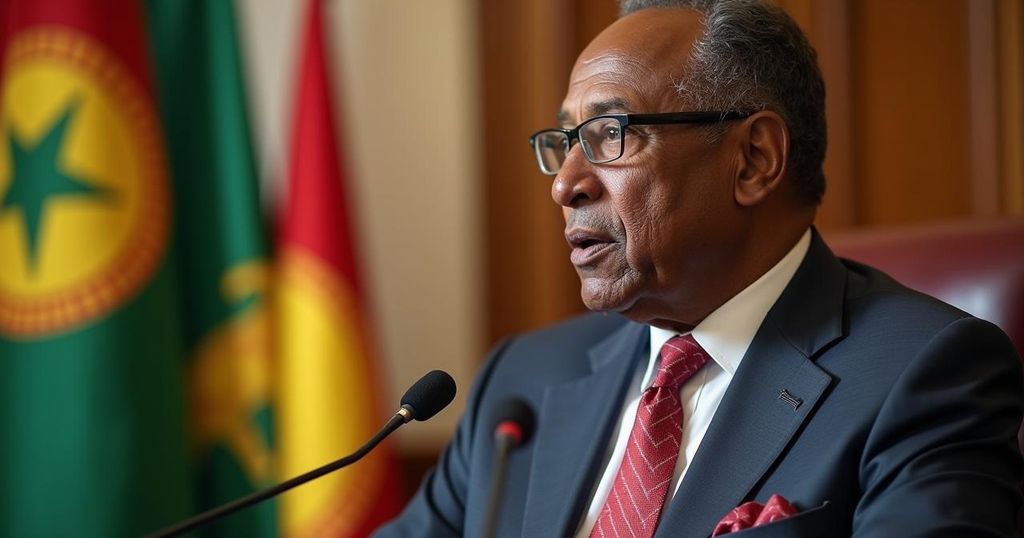Cameroon Implements Ban on Media Discussions Regarding President Biya’s Health

The Cameroonian government has banned media discussions about President Paul Biya’s health following his absence from public engagements since early September. Interior Minister Paul Atanga Nji issued the ban, designating it a matter of “national security” and threatening legal consequences for violations. The move has drawn criticism for censorship, particularly amidst concerns about Biya’s lengthy rule and political instability in the region.
The Cameroonian government has instituted a ban on media discussions regarding the health of President Paul Biya, a 91-year-old leader who has not appeared in public since early September. This decree was issued by Interior Minister Paul Atanga Nji, who stated in a letter dated October 9 that any debate on the president’s health is “strictly prohibited”. He urged the establishment of “monitoring cells” to oversee online discussions, framing the topic as a matter of “national security”. The letter warned that violations of this order would result in legal repercussions. The last public appearance of President Biya was during the China-Africa summit in Beijing, after which he was absent from several anticipated events, including the United Nations General Assembly. In response to media speculation about the president’s condition, government spokesperson Rene Sadi claimed that Biya had undertaken a private visit to Europe following the summit. He categorically dismissed the widespread rumors as “pure fantasy” and asserted that the president is in “good health” and expected to return to Cameroon shortly. The government’s ban has attracted criticism as a form of state censorship, with some arguing it violates the democratic right to information. Hycenth Chia, a journalist, remarked that it is customary for citizens to be concerned about the health of their elected leaders, comparing the openness of discussions surrounding other leaders, such as U.S. President Joe Biden, to the restrictions imposed in Cameroon. Angela Quintal of the Committee to Protect Journalists (CPJ) expressed serious concern, calling the invocation of national security on this significant matter “outrageous”. Given the lack of a clear succession plan, observers note that President Biya’s passing could result in substantial political instability in the region, which has already witnessed a series of coups in recent years. Having governed Cameroon for over 41 years, Biya’s tenure is among the longest in Africa, surpassed only by the president of Equatorial Guinea.
Cameroon is currently under the leadership of President Paul Biya, who has been in power for more than four decades. His prolonged rule has created a complex political landscape, particularly as there is no established succession plan. The country has been experiencing political unrest and instability, with neighboring nations undergoing military coups and attempts to unseat governments. As Biya’s age raises concerns over his health and ability to govern, the government’s suppression of discussion on his health signifies deeper issues related to transparency and civic engagement. The media in Cameroon has faced increasing restrictions, prompting concerns from press freedom organizations that such actions limit democratic discourse and accountability.
The governmental ban on discussing President Biya’s health raises significant concerns regarding press freedom and transparency in Cameroon. While officials assert that the president is in good health, the restrictions on media reporting and public discourse indicate an underlying tension related to the country’s political climate and governance. As observers continue to highlight the potential ramifications of Biya’s long-term rule, the lack of a succession strategy remains a pressing issue for the stability of Cameroon and its surroundings.
Original Source: www.aljazeera.com







